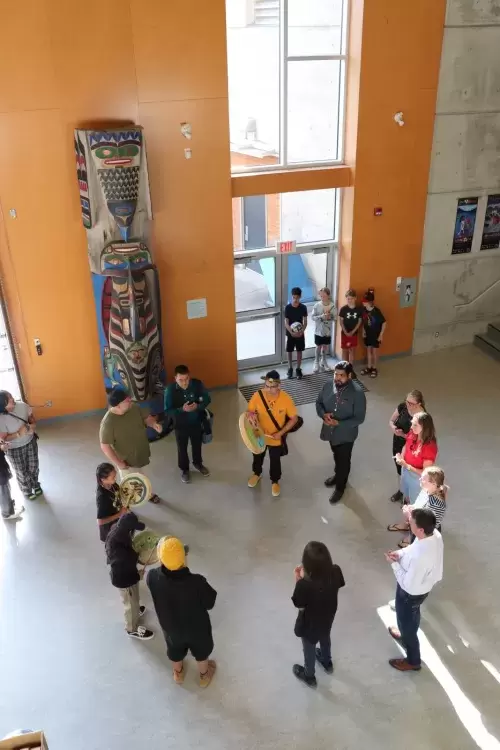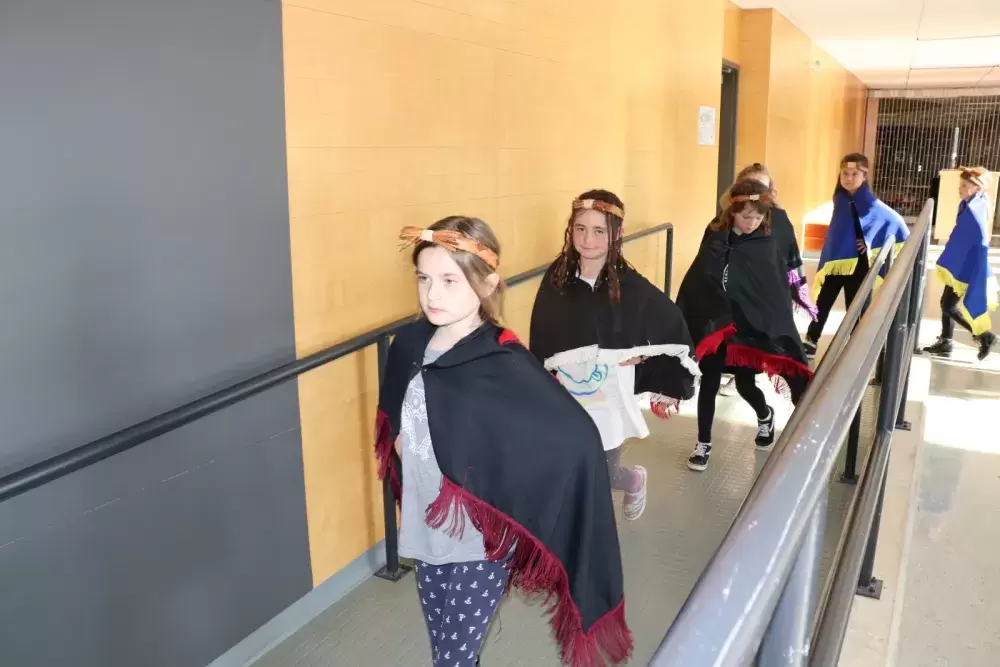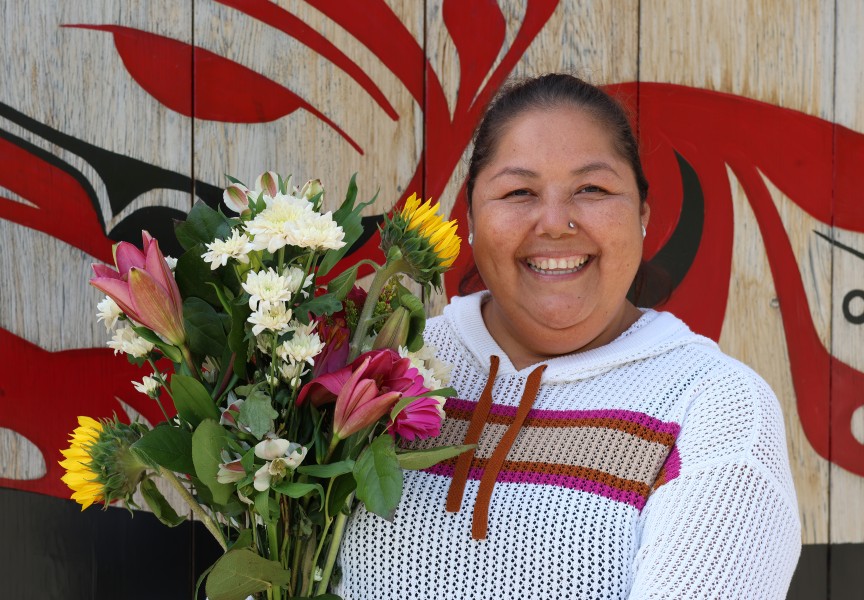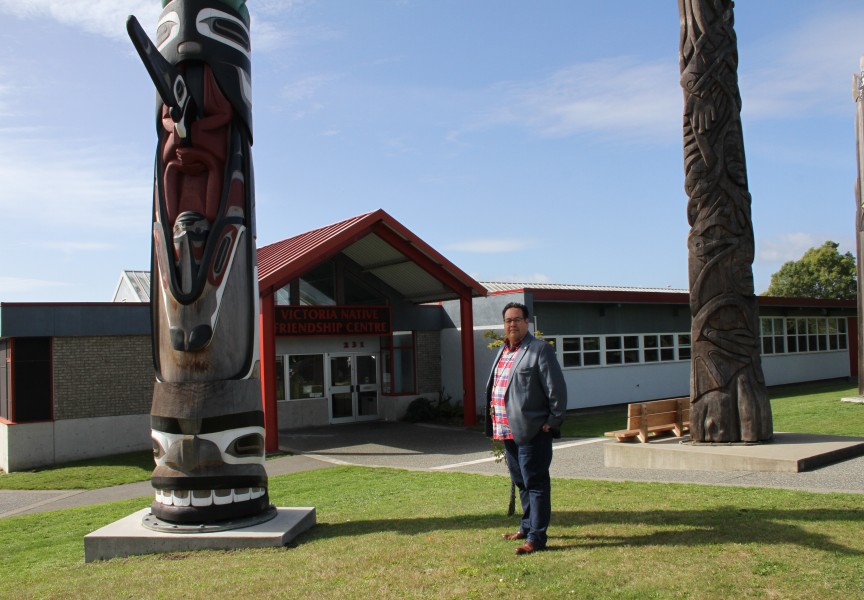Over the past two years a group of School District 70 (SD70) educators and members of a professional learning community met through the year to collect resources, share ideas and spread knowledge of Nuu-chah-nulth language throughout schools.
The Collaborative Language Inquiry included 10 teachers, four Nuu-chah-nulth education workers and one NTC supervisor in the 2021/2022 group and the 2022/2023 group involved 15 teachers, two education workers and one NTC supervisor. Each year included different participants except for a few who did both.
The groups worked together to identify common challenges, analyze relevant data and test instructional approaches.
“Our inquiry project each year involved a $5,000 grant from the BC Teacher’s Federation (BCTF), $2,500 from the Alberni District Teacher’s Union and $2,500 from SD70-Pacific Rim,” said Lisa Tremblay of the SD70 Indigenous education team. “The money paid for release time for teachers to meet five times during the year and to produce resources for the teachers to use.”
Tremblay said the inquiry group’s question they explored in 2021/2022 was, "how will the development of best practices in teaching the Nuu-chah-nulth language benefit all of our learners, and our school community."
“This year we continued exploring last year’s question, but teachers worked on their own specific questions and goals as well,” Tremblay said. “We have represented 11 different schools, all grades and three different communities.”
The goal of the program is to introduce students to the Nuu-chah-nulth language, creating an appreciation and respect for the language and culture. For Grades K-7, Nuu-chah-nulth language is added to classrooms as enrichment or as the second language requirement and is delivered through cross-curricular thematic units and formal lessons.
Lessons focus more on oral language rather than literacy skills, especially for Grades K-4, and include language teachers from the Nuu-chah-nulth community as much as possible.
Teachers involved in the inquiry asked for one location where students could go to study Nuu-chah-nulth on their own, which prompted the creation of Kid’s Place—an online interactive webpage where children can go to learn the language through games.
Developments that have come from the inquiry projects include having more Nuu-chah-nulth language taught in the classroom, in some cases as the chosen second language over French.
Other developments included connecting families through language, creating resources for students that could easily be accessed at home and shared with family and more students choosing Nuu-chah-nulth at the secondary level.
“Teachers reported that overall all students enjoyed learning the language and teachers reported hearing students using the language outside of class and on the playgrounds,” Tremblay said. “There were many testimonials from teachers of increased engagement in classroom activities from their Indigenous students and signs of greater confidence of sharing their language and culture with their classmates.”
Tremblay added that Nuu-chah-nulth education workers shared that they were being asked to teach language in more classrooms on a regular basis and were very positively received by all members of the classroom.
Moving forward, Tremblay said the Indigenous Education Team will be moving to the SD70 board office to work more closely with other district resource teachers and district leadership to help facilitate more language being included in all areas of learning. They also hope to have elders in every school.
“Teaching Nuu-chah-nulth in SD70 schools shows the diversity between cultures and their importance, promoting respect among them. Our goal is to introduce students to the Nuu-chah-nulth language creating an appreciation and respect for the language,” Tremblay said. “For our Nuu-chah-nulth students learning their language helps develop a strong identity and connection to the lands that they live on.”
Tremblay added that working and supporting ways to further embed Nuu-chah-nulth culture and language is a priority for all administrators and teacher in SD70.








